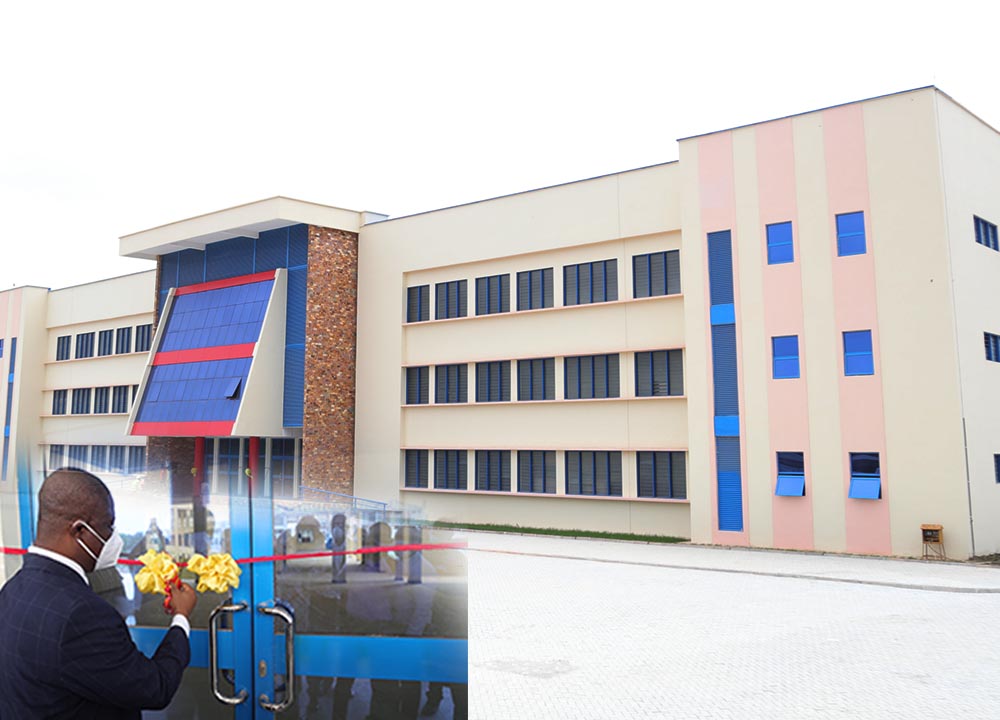UCC ENGINEERING COURSES

Academic programs of the University are vested in its nine Faculties/Schools organized under five Colleges. These are Faculty of Arts, Faculty of Social Science, School of business, Faculty of Law, School of Agriculture, School of Biological Science, School of Physical Science, School f Medical Science, School of Nursing & Midwifery, School of Allied Health Science, College of Education Studies and College of Distance Education.
The Faculties/Schools offer degree, diploma, and certificate programs under the following general nomenclature.
School of Physical Sciences
B.Sc. (Computer Science)
B.Sc. (Engineering Physics)
B.Sc. (Industrial Chemistry)
B.Sc. (Information Technology)
B.Sc. (Laboratory Technology)
B.Sc. (Mathematics)
B.Sc. (Mathematics & Statistic)
B.Sc. (Mathematics with Business)
B.Sc. (Meteorology & Atmospheric Physics)
B.Sc. (Mathematics with Economics)
B.Sc. (Statistics)
B.Sc. (Actuarial Science)
B.Sc. (Chemistry)
B.Sc. (Physics)
B.Sc. (Water & Sanitation)
B.Sc. (Fisheries & Aquatic Science)
Diploma in Water & Sanitation
ENGINEERING PHYSICS
Degree Type:
Bachelor of Science
Department:
Department of Physics
Programme Duration:
4 years (Standard Entry)
Modes of Study:
Regular
About Programme:
Career opportunities abound (mostly in laboratory settings) in teaching and consulting in engineering physics or related technical and professional fields. The training giving to our students also prepares them for real world applicability of skills in a multitude of industrial, educational, and research disciplines.
Entry Requirements:
The Minimum Admission Requirement into the programme in the University of Cape Coast for WASSCE applicants is aggregate 36. For SSSCE applicants, the minimum requirement is aggregate 24. i. Candidates must have credit passes in six (6) subjects with overall aggregate of 36/24 at the WASSCE / SSSCE level respectively. ii. Three of the six subjects must be core subjects: English Language, Mathematics, Integrated Science or Social Studies and the other three must be relevant electives which include Mathematics, Chemistry and Physics. iii. For purposes of admission, a credit pass in: (a). WASSCE means A1 – C6 (b). SSSCE means A – D
Career Opportunities:
The Bachelor of Science in Engineering Physics teaches the science that underlies engineering and prepares students for engineering design and development 84 employment or further graduate studies. Engineering physics is a field that provides broad training in physics and mathematics and basic training in engineering and design. The practitioner of engineering physics is involved in the development of new devices and products using sophisticated physical concepts in areas where technology is changing rapidly and where the boundaries of several traditional engineering disciplines overlap.
Our programme will inspire you to push the existing barriers of technology and break new grounds in engineering physics and its related areas. The interdisciplinary nature of the programme provides students with a strong grounding in engineering design and the application of physics principles to practical engineering problems as well as routine problems in engineering, and the flexibility to exploit basic knowledge in any branch of science and technology using analytical and experimental skills.
Programme Structure
Level 100
First Semester
CMS 107: COMMUNICATIVE SKILLS IENP 101: ORIENTATION TO ENGINEERINGPHY 101: GENERAL PHYSICS I (THEORY)PHY 103: GENERAL PHYSICS I (PRACTICAL)
Second Semester
CMS 108: COMMUNICATIVE SKILLS IIENP 102: BASIC COMPUTER-AIDED DESIGNPHY 102: GENERAL PHYSICS II (THEORY)PHY 104: GENERAL PHYSICS II(PRACTICAL)
Level 200
First Semester
ENP 201: ENGINEERING MECHANICS (THEORY)ENP 203: PHYSICS FOR ENGINEERS (THEORY)ENP 205: ENGINEERING MECHANICS (PRACTICAL)ENP 207: PHYSICS FOR ENGINEERS (PRACTICAL)PHY 209: COMPUTING FOR PHYSICS I
Second Semester
ENP 204: ANALOGUE ELECTRONICS (THEORY)ENP 208: ANALOGUE ELECTRONICS (PRACTICAL)PHY 202: ELECTRICITY AND MAGNETISM (THEORY)PHY 206: ELECTRICITY AND MAGNETISM (PRACTICAL)PHY 210: COMPUTING FOR PHYSICS II
Level 300
First Semester
ENP 315: DIGITAL ELECTRONICSENP 317: THERMODYNAMICSENP 301: APPLIED OPTICSENP 307: MATHEMATICS FOR ENGINEERS IENP 313: MATERIAL SCIENCE IENP 399: RESEARCH METHODS
Second Semester
ENP 302: CLASSICAL MECHANICSENP 306: COMPUTING AND NUMERICAL METHODSENP 312: SIGNALS & SYSTEMS ANALYSISENP 314: MATERIAL SCIENCE IIENP 316: MATHEMATICS FOR ENGINEERS II
Level 400
First Semester
ENP 423: COMMUNICATION SYSTEMSENP 401: NUCLEAR AND PARTICLE PHYSICSENP 403: QUANTUM MECHANICS IENP 405: ELECTROMAGNETIC FIELD THEORY IENP 407: STATISTICAL PHYSICSENP 409: SEMICONDUCTOR DEVICE PHYSICSENP 411: PHOTONICSENP 413: METEOROLOGICAL PHYSICSENP 419: MICROPROCESSOR TECHNOLOGYENP 499: PROJECT WORK ENP 425: RENEWABLE ENERGY
Second Semester
ENP 402: SOLID STATE PHYSICSENP 404: QUANTUM MECHANICS IIENP 406: ELECTROMAGNETIC FIELD THEORY IIENP 408: RENEWABLE ENERGYENP 416: DATA ACQUISITION SYSTEMSENP 424: OPTICAL ENGINEERINGENP 426: NANOTECHNOLOGY




